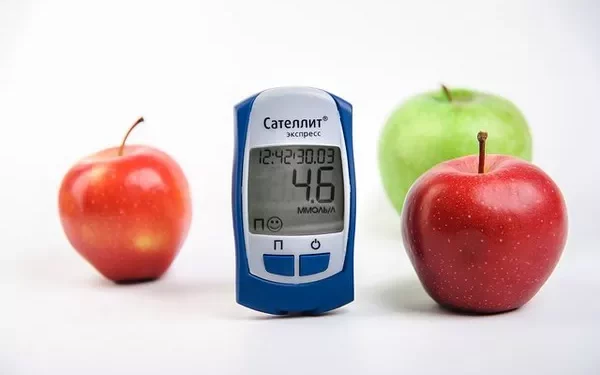Hypoglycemia, characterized by low blood glucose levels, is a common concern for individuals with diabetes. It poses significant risks and challenges to diabetes management, affecting both Type 1 and Type 2 diabetes populations. However, the underlying mechanisms, risk factors, and management strategies may differ between these two distinct forms of diabetes. In this article, we aim to provide a comprehensive analysis of hypoglycemia in Type 1 and Type 2 diabetes, elucidating their differences and similarities to enhance clinical understanding and optimize patient care.
Understanding Type 1 Diabetes
Type 1 diabetes is an autoimmune disorder characterized by the destruction of pancreatic beta cells, leading to an absolute insulin deficiency. Without exogenous insulin administration, individuals with Type 1 diabetes cannot survive. The pathophysiology involves the immune-mediated destruction of beta cells, usually initiated by genetic predisposition and triggered by environmental factors, such as viral infections.
In Type 1 diabetes, hypoglycemia often results from an imbalance between insulin administration, carbohydrate intake, and physical activity. Since individuals with Type 1 diabetes rely entirely on exogenous insulin, overdosing or miscalculating insulin doses can precipitate hypoglycemia. Additionally, intense physical activity or delayed or insufficient carbohydrate consumption can exacerbate this risk.
Moreover, the absence of endogenous insulin secretion in Type 1 diabetes prevents counter-regulatory hormonal responses to hypoglycemia, such as glucagon release and catecholamine secretion. This impaired hormonal counter-regulation further predisposes individuals with Type 1 diabetes to severe hypoglycemic episodes, necessitating prompt recognition and intervention.
Understanding Type 2 Diabetes
Type 2 diabetes, on the other hand, is characterized by insulin resistance and relative insulin deficiency. Although pancreatic beta cells may produce insulin initially, its effectiveness is compromised due to insulin resistance in target tissues, such as muscle, liver, and adipose tissue. Over time, beta cell function declines, exacerbating the relative insulin deficiency.
In Type 2 diabetes, hypoglycemia primarily occurs due to pharmacological therapy, particularly insulin or insulin secretagogues like sulfonylureas and meglitinides. These medications aim to improve glycemic control by either enhancing insulin secretion or reducing hepatic glucose output. However, their use carries a risk of inducing hypoglycemia, especially if not titrated appropriately according to individual glucose profiles and dietary habits.
Furthermore, in Type 2 diabetes, the presence of residual endogenous insulin secretion enables some degree of counter-regulatory response to hypoglycemia. Although attenuated compared to individuals without diabetes, counter-regulatory mechanisms, including glucagon secretion and sympathoadrenal activation, contribute to the body’s defense against hypoglycemia in Type 2 diabetes.
Differences in Hypoglycemia Risk Profiles
The risk factors for hypoglycemia differ between Type 1 and Type 2 diabetes due to variations in underlying pathophysiology, treatment modalities, and counter-regulatory responses.
In Type 1 diabetes, the risk of hypoglycemia is primarily related to exogenous insulin therapy, carbohydrate intake, physical activity, and individual variability in insulin sensitivity. Factors such as insulin dosing errors, inconsistent carbohydrate intake, unplanned exercise, and alcohol consumption can precipitate hypoglycemic episodes in individuals with Type 1 diabetes.
Conversely, in Type 2 diabetes, the risk of hypoglycemia is influenced by the type and intensity of pharmacological therapy. Insulin and insulin secretagogues pose a higher risk of hypoglycemia compared to other antidiabetic agents, such as metformin, DPP-4 inhibitors, and GLP-1 receptor agonists. Additionally, advanced age, renal impairment, hepatic dysfunction, cognitive impairment, and polypharmacy increase susceptibility to hypoglycemia in individuals with Type 2 diabetes.
Moreover, the presence of comorbidities, such as cardiovascular disease, autonomic neuropathy, and hypoglycemia unawareness, further amplifies the risk of severe hypoglycemia in both Type 1 and Type 2 diabetes populations.
Clinical Manifestations of Hypoglycemia
Hypoglycemia can manifest with a wide range of symptoms, varying in severity and onset, which may impact recognition and management strategies. The classic symptoms of hypoglycemia include palpitations, tremors, sweating, hunger, irritability, confusion, dizziness, and blurred vision. However, the severity and combination of symptoms may vary between individuals and may be influenced by factors such as age, duration of diabetes, glycemic control, and presence of comorbidities.
In Type 1 diabetes, hypoglycemia tends to occur more acutely due to the rapid onset and short duration of action of exogenous insulin. This can lead to sudden and pronounced symptoms, necessitating immediate intervention to prevent neuroglycopenic sequelae, such as seizures, coma, and even death.
Conversely, in Type 2 diabetes, hypoglycemia may present with more gradual onset and milder symptoms, particularly in individuals with impaired awareness of hypoglycemia. This poses challenges in timely recognition and intervention, increasing the risk of prolonged hypoglycemia and its associated complications.
Management of Hypoglycemia
Effective management of hypoglycemia requires a multifaceted approach, including prevention, recognition, and prompt intervention. Strategies should be tailored to individual patient characteristics, preferences, and treatment regimens to optimize glycemic control while minimizing the risk of hypoglycemia.
In Type 1 diabetes, proactive measures to prevent hypoglycemia include regular self-monitoring of blood glucose, carbohydrate counting, insulin dose adjustments, and awareness of physical activity effects. Additionally, the utilization of advanced technologies, such as continuous glucose monitoring (CGM) systems and insulin pumps, can aid in real-time glucose monitoring and insulin delivery, thereby reducing the risk of hypoglycemia.
During hypoglycemic episodes, the treatment involves the prompt administration of fast-acting carbohydrates, such as glucose tablets, fruit juice, or regular soda, to rapidly raise blood glucose levels. Glucagon emergency kits may be prescribed for severe hypoglycemia episodes requiring assistance from caregivers or emergency medical services.
In Type 2 diabetes, hypoglycemia prevention focuses on individualizing pharmacological therapy to minimize the risk of hypoglycemia while achieving glycemic targets. This may involve the selection of antidiabetic agents with lower hypoglycemia potential, such as metformin, GLP-1 receptor agonists, or SGLT-2 inhibitors, as initial or adjunctive therapy.
See also:Why Doesn T Metformin Cause Hypoglycemia
Conclusion
In conclusion, hypoglycemia represents a significant clinical challenge in both Type 1 and Type 2 diabetes populations, albeit with distinct risk profiles and management considerations. Understanding the underlying pathophysiology, risk factors, clinical manifestations, and management strategies is paramount to optimizing patient care and minimizing the risk of hypoglycemia-related complications. By employing a personalized and multidisciplinary approach, healthcare providers can empower individuals with diabetes to achieve glycemic targets while mitigating the risk of hypoglycemia, thereby enhancing overall health outcomes and quality of life.
Related topics:
What Are Signs Of Hypoglycemia In Newborns



























